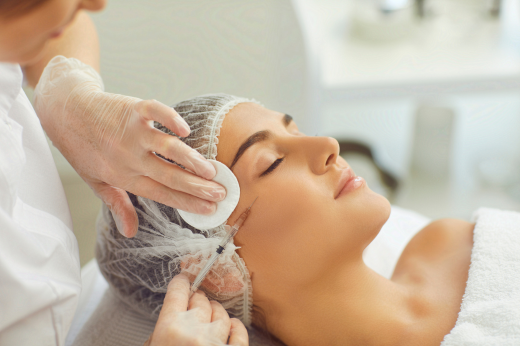
Are you distressed due to wrinkles and fine lines on your face? Are these unsightly lines lowering your self-esteem? Wrinkle lines occur around the eyes, mouth, and between eyebrows. The good news is there are numerous treatment options for wrinkles today. People are flocking to cosmetic clinics for longer-lasting options. In addition to the endless anti-aging products available online and in the market that help treat these lines and wrinkles, facial injectables are another option.
Botox is a popular cosmetic treatment administered through injections, usually in a clinical setting. It is minimally invasive, meaning it does not involve surgery or hospitalization. Botox injections are gaining traction because they offer several long-term benefits. Read on to learn about Botox and determine if it is right for your skin-related concerns.
Botox is a popular brand of botulinum toxin injections. Botox is a neurotoxin that causes temporary muscle paralysis. The toxin targets the nervous system, disrupting the nerve signal process that is responsible for stimulating muscle contraction. Botox injections prevent the release of acetylcholine (a chemical messenger that attaches to the receptor on the muscle cells and causes the cells to shorten or contract), which stops the muscle from contracting. Therefore, the toxin helps the muscles become less stiff.
Furthermore, it is important to know that botulinum toxin is hazardous and fatal. Research studies have estimated that 1 gram of the toxin is lethal enough to kill 1 million people. However, when Botox is used appropriately in a therapeutic dose, it is safe with fewer side effects.
Botox is a toxin, but when used correctly and in small doses, it can be used for cosmetic and medical purposes.
Botox injections are used for anti-aging since they can smooth fine lines and wrinkles in several areas of your face, such as:
However, the FDA (Food and Drug Administration) has only approved Botox for use around the eyes and on the forehead.
Botox injections have been used for decades for medical reasons, most of which affect the neuromuscular system. Some of the conditions treated by Botox injections include:
Although Botox is safe when injected in a carefully monitored dose, certain people are at an increased risk of serious complications. These include:
Botox injections are an outpatient procedure that does not require any hospitalization.
Botox injections are a non-invasive procedure; you can return to work and most activities immediately after the procedure. However, follow the instructions given by your doctor to prevent any complications like redness, bruising, and swelling.
Botox injections are safe and highly effective when administered by a trained and licensed doctor in a medically graded dose. It usually takes 27 to 72 hours for Botox to show results. The results can last 3 to 9 months, depending on the area treated. However, based on your individual needs, you may require retreatment.
Currently, Botox injections are trending since they offer a wide range of cosmetic and health benefits.
Botox injections are safe, but you may experience mild side effects that usually improve in a day or two. These include:
Botox is usually a standard procedure without any severe side effects. However, call your doctor immediately if you experience:
Botox injections have been trending since they offer many applications and benefits. They have cosmetic and medical uses. Botox is a popular neurotoxin that results in muscle paralysis; thus, it is used in skin rejuvenation by fighting fine lines and wrinkles and certain disorders related to the nervous and muscular systems. However, a licensed doctor should take care to get these injections in smaller doses.
If you are experiencing signs of aging or other issues like an overactive bladder or chronic neck, head, and jaw pain, consult your doctor to explore options like Botox injections if it is deemed suitable for your condition.